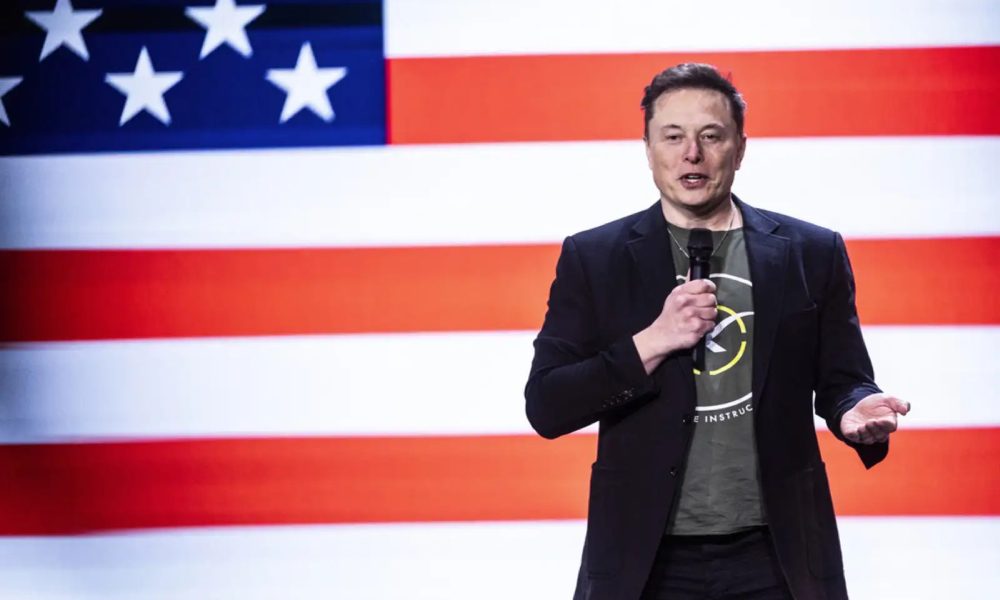WASHINGTON: A federal judge declined to temporarily block Elon Musk and his Department of Government Efficiency (DOGE) from accessing federal data.
Judge Tanya Chutkan’s decision is a setback for Democratic attorneys general seeking to limit DOGE’s influence.
The case revolves around Musk’s controversial role and his department’s control over executive branch agencies.
Chutkan suggested skepticism about the Trump administration’s claims regarding Musk’s authority within DOGE.
Musk’s access to sensitive government data is at the center of legal challenges against Trump’s restructuring of federal agencies.
Legal Battle Over Appointments Clause
The attorneys general sued Musk, arguing his role violates the Constitution’s Appointments Clause.
This clause mandates Senate confirmation for officials exercising significant government authority.
The lawsuit seeks to prevent DOGE from accessing government systems at multiple federal agencies.
These agencies include the Office of Personnel Management, Education, Labor, and Health and Human Services.
The plaintiffs also want to stop DOGE from firing or placing federal employees on involuntary leave.
Judge Rules Against Temporary Restraining Order
Chutkan ruled the attorneys general failed to prove imminent, irreparable harm requiring an immediate court order.
She acknowledged that DOGE’s actions have caused uncertainty and confusion for plaintiffs and affected agencies.
Her ruling stated that the states had not demonstrated how their programs would suffer immediate damage.
Despite this, Chutkan recognized the states’ overall case against Musk as strong.
However, she concluded their current arguments did not justify emergency judicial intervention.
Musk’s Appointment Questioned
The judge noted the states had presented a legitimate Appointments Clause argument.
Musk has not been nominated by the president or confirmed by the Senate.
Officers exercising significant federal authority must go through proper constitutional procedures.
Despite the strong case, Chutkan stressed that a legal victory on the merits does not guarantee an emergency injunction.
The court must weigh both legal strength and immediate harm before issuing a restraining order.
Concerns Over Federal Workforce Changes
DOGE’s restructuring efforts include potential agency downsizing and policy shifts.
The attorneys general argue that these changes could dismantle critical federal services.
They claim Musk’s control could lead to disruptions affecting millions of Americans.
They also worry about the security of sensitive federal information under DOGE’s oversight.
The judge’s ruling does not prevent future legal action but denies immediate intervention.
Judge Warns DOJ on Court Statements
Chutkan added a firm warning to the Department of Justice regarding truthful court representations.
She highlighted contradictions between Trump’s executive orders and claims about DOGE’s role.
Trump’s orders explicitly link DOGE to federal personnel decisions.
This raises concerns about DOGE’s authority over government employment and policy changes.
Chutkan reminded government lawyers of their obligation to provide accurate information.
Additional Lawsuits Challenge DOGE’s Authority
Several lawsuits allege DOGE violates privacy laws by accessing restricted federal IT systems.
Critics say DOGE’s control over government networks poses security risks.
Plaintiffs argue that DOGE-affiliated personnel should not oversee highly sensitive data.
The administration faces multiple legal battles over DOGE’s operations.
The attorneys general remain focused on challenging Musk’s appointment as unconstitutional.
States Seek to Preserve Federal Agency Integrity
The attorneys general argue DOGE’s actions could permanently alter federal agency structures.
They seek to preserve pre-DOGE agency functions, ensuring they operate independently.
They emphasize that federal agencies play vital roles in serving American citizens.
Without intervention, they claim, DOGE could disrupt essential government programs.
The states argue the restraining order is necessary to prevent irreversible harm.
Potential Future Court Actions
Despite the setback, the states may seek a preliminary injunction as the case progresses.
A preliminary injunction would require stronger evidence of immediate harm.
Chutkan’s ruling does not resolve the broader legal dispute over Musk’s authority.
The case will likely proceed through lengthy legal challenges in federal court.
For now, DOGE retains its access to federal data and decision-making authority.












